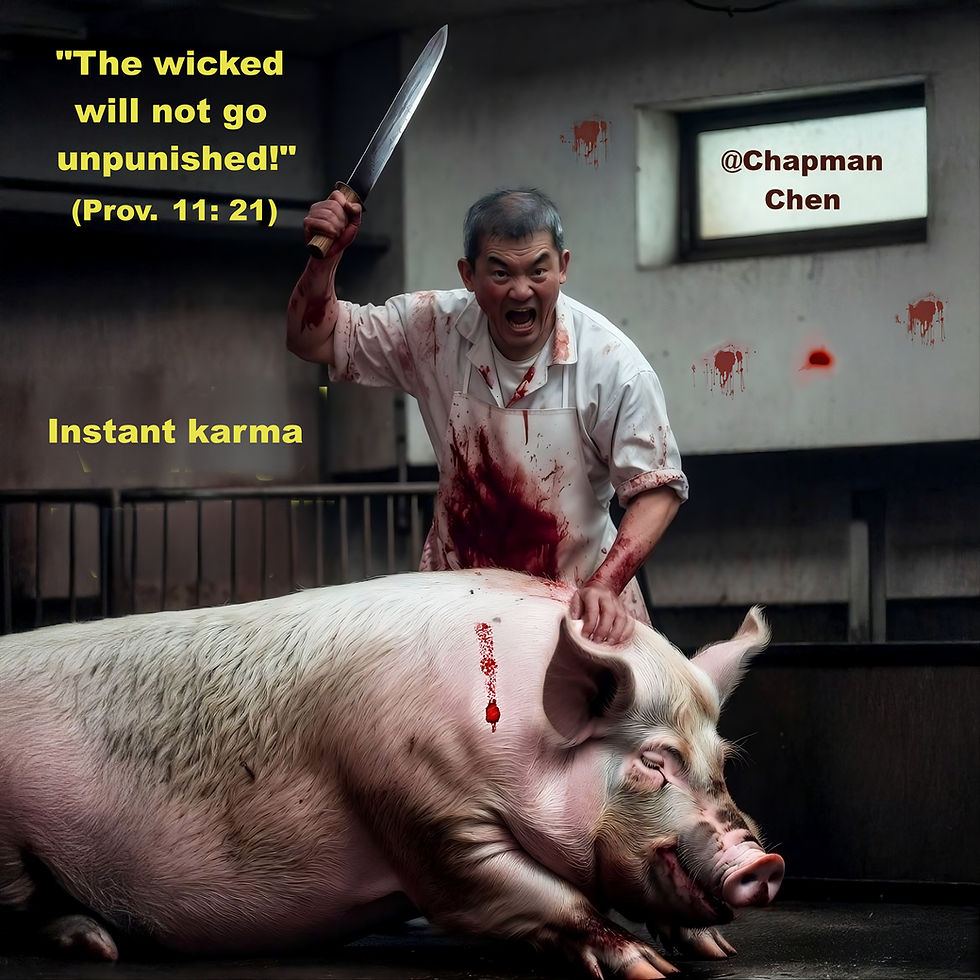Saint Columba of Iona and His Weeping Horse. By Dr. Chapman Chen
- Chapman Chen

- Jun 9, 2025
- 3 min read

Today (9 June) is the feast day of Saint Columba of Iona (521–597), one of the Twelve Apostles of Ireland and the founding abbot of the influential Iona Abbey. He is best remembered for his role in spreading Christianity throughout early medieval Scotland. Yet beyond his missionary feats, The Life of Saint Columba by Adomnán—his successor and biographer—reveals a man deeply attuned to the sacredness of all life, human and nonhuman alike. His reverence for animals and rejection of violence toward them anticipates the heart of what we now call vegan theology.
1. The Knife That Would Not Kill
In one striking episode, a monk named Molua asks Columba to bless a knife intended for slaughter. Without looking up, the saint makes the sign of the cross over the weapon. When informed that it was meant to kill oxen, Columba prays that it will never wound man or beast. Miraculously, the knife becomes incapable of cutting flesh — and the iron is later repurposed to coat all tools in the monastery, rendering them permanently non-lethal.
"I trust in my Lord that the knife I have blessed will never wound men or cattle." (Adomnán 1874, 56)
Here, Columba embodies Christ’s words in Matthew 9:13: “I desire compassion, not sacrifice.” He instinctively rejects the culture of ritual slaughter and instead blesses tools into instruments of peace. This is not merely symbolic. It is spiritual resistance to the normalization of killing animals. His action calls the Church — then and now — to a higher standard of compassion and nonviolence.
2. The Grieving White Horse
In another profoundly tender moment, as Columba rests in his final days, a white pack-horse approaches and lays its head gently on his chest, weeping openly. The saint’s attendant tries to shoo the animal away, but Columba stops him:
“Let it alone, as it is so fond of me—let it pour out its bitter grief into my bosom” (Adomnán 1874, 96)
He affirms that the creature is divinely moved — that animals too can sense the nearness of death and mourn. Unlike many modern theologians who dismiss animal emotion, Columba does not scoff. He venerates it.
In this moment, the Celtic saint recognises what Scripture affirms: that “the whole creation groans” (Romans 8:22), awaiting redemption. The horse is not a thing, but a thou — a fellow creature of God, capable of both love and lamentation.
3. A Vegan Christ-Follower Before His Time
Although Columba lived in a culture that still practiced animal sacrifice and meat consumption, his instinctual acts of mercy reveal an inner orientation toward compassionate purity. In this way, he mirrors the Vegan Christ — the good shepherd who liberated animals from the Temple system, who called peacemakers “children of God,” and who taught that not one sparrow is forgotten before the Father (Luke 12:6).
Columba did not need to call himself vegan to live the ethic of Eden restored — where lions lie down with lambs, and harm is no more (Isaiah 11:6–9). His life gives Christians today a Celtic precedent for embracing a peaceable kingdom on earth — one where knives cannot kill and animals are known, loved, and comforted. #VeganChrist #VeganGod #VeganTheology #VeganChurch
Full text: https://www.vegantheology.net/post/saint-columba-of-iona-and-his-weeping-horse-by-dr-chapman-chen
References
Adomnán, Saint (1874). Life of Saint Columba, Founder of Hy. Ed. William Reeves. Edinburgh: Edmonston and Douglas. https://archive.org/details/lifeofsaintcolum00adamuoft/page/55/mode/2up?q=knife&view=theater





Comments